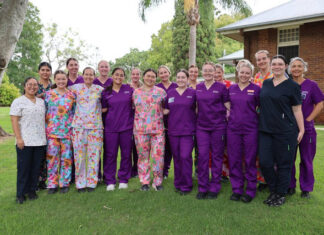Expanding medicinal cannabis trials for end-of-life care in regional Queensland

Digital Edition
Subscribe
Get an all ACCESS PASS to the News and your Digital Edition with an online subscription
Midwifery graduates choose Darling Downs for career start
Thirty-nine midwifery graduates from across the country are set to kick off their career journeys with Darling Downs Health.
Under the supervision and guidance of...








